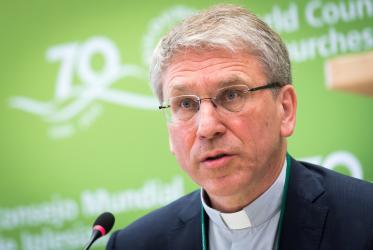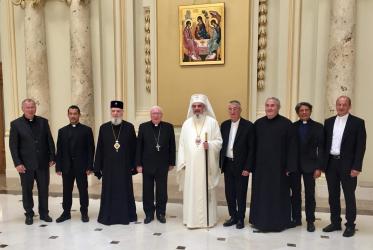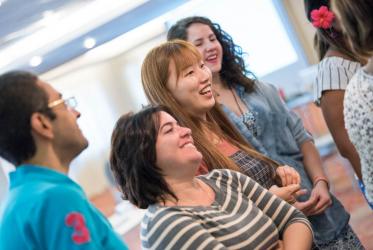Displaying 41 - 60 of 100
27 September 2018
#WCC70: A prayer about health and healing
20 July 2018
“We must see further than our own issues.”
14 December 2017
WCC Executive Committee issues statement on bishop from Philippines
18 November 2017
WCC commission reflects on challenges of ecumenical formation
10 October 2017
“Overcoming economic injustice” vision of WCC’s Athena Peralta
23 February 2017
New videos help congregations hasten HIV response
20 October 2016














